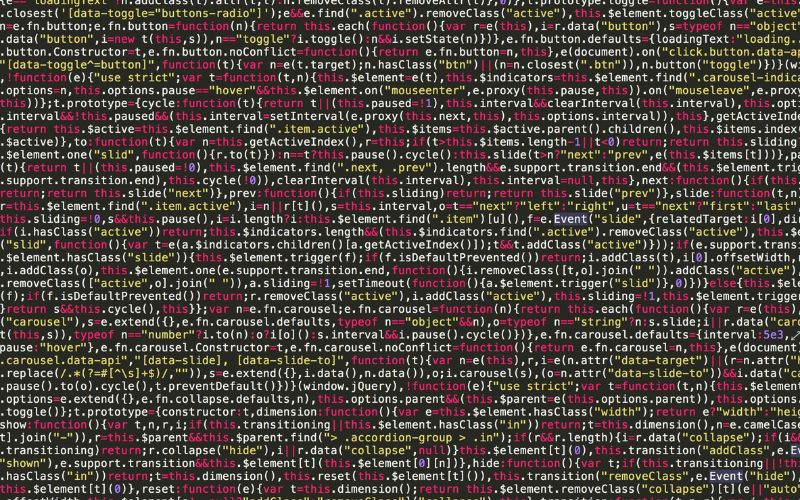Businesses of all sizes are becoming
increasingly dependent on cloud computing as an integral part of their IT
infrastructure.
In a recent study released by Synergy
Research Group, it was found that the global cloud infrastructure market was
valued at $126 billion in Q1-2022 with a growth forecast to continue for the
foreseeable future.
The advent of a cost-effective cloud
computing framework makes it possible for enterprises to easily handle large
datasets while incorporating flexible working models and maximizing resource
utilization to drive innovation.
In the event that bandwidth requirements
increase in the future, scalable cloud solutions can provide sufficient
bandwidth to meet those requirements instantly, avoiding the need for
cumbersome and expensive upgrades to the IT infrastructure on-premises.
Taking into consideration the exponential
growth of cloud services, and the increasing demand for high-performance
applications, it has become imperative for developers to be aware and educated
about the best programming languages to use when creating cloud applications.
As the fulcrum of cloud infrastructure
performance, the choice of programming language determines everything from the
time it takes to implement a project to how scalable and secure the
infrastructure is.

In this article, I will discuss the best
programming languages for cloud computing. So let's get into more detail about
what this means.
1) Python
When it comes to learning cloud computing programming
languages and developing cloud services, Python absolutely tops the list for
the best language to learn.
It also comes with a huge number of
third-party modules that optimize the development process by making it safer,
easier, and more efficient.
Moreover, the best part of this programming
language is that it is extremely beginner-friendly, and the learning curve is
not as steep as compared to other languages depending on how much experience
you have.
It should be noted that Python is widely used
in the development of serverless applications within Amazon Web Services and is
also supported by AWS Lambda, a serverless application platform.
Besides being cross-platform, Python is also
known as a full-stack programming language because it can be used across all
phases of cloud development regardless of the platform.
Moreover, AWS has a large dependency on
Python for cloud development, but even Microsoft's Azure Cloud has Python as
one of its supported cloud development languages.
Python is one of the most popular languages
in the world owing to the huge support it receives from developers as well as
its vast use in cloud computing, data technologies, and software development.
It is not going to die down anytime soon and it will replace even more
languages in the near future.
2) Ruby
The fantastic thing about Ruby is that it is
an ideal choice for cloud developers not only because it is easy to learn, and
has excellent features like security and high functionality, but also because
it has a vast amount of resources for learning Ruby for creating modern-day applications.

In addition to this, Android contains more
than 60,000 libraries and frameworks that will help you develop an application
with minimal difficulty as well as speed.
A free, open-source, and vigorously supported
Ruby framework allowing developers to develop applications in Ruby on Google
Cloud. Apps developed using Ruby on Google Cloud are easily integrated with
Cloud monitoring, tracing, error reporting, and logging.
3) Golang
There has been a sudden rise in popularity
for Golang in the cloud development world of late, in particular when it comes
to mobile apps.
As a modern, modern language created and
backed by Google, it has concurrency support, package management, and
parallelism management built in, which makes it a popular choice for developers
and engineers alike because it is a robust and modern language.
Several cloud platforms use Golang, but
Google Cloud Platform (GCP) is the cloud platform that is most commonly used
when working with Golang.
Through the use of microservices, you can
build efficient, scalable, and secure applications, and you can also handle
lower-level communication with the server during the creation of such
applications.
In fact, Google Cloud itself is built on Go,
and as a result of deep integration, authentication capabilities, and idiomatic
interfaces and libraries, it is being widely adopted by enterprises who work in
the cloud.
Uber, SoundCloud, Atlassian, Monzo, and many
other cloud-based applications use Golang as their platform and are powered by
the language.
4) ASP.NET
With the help of Microsoft's ASP.NET program,
dynamic and robust web apps and websites can be developed quickly and with
great functionality.
It has inbuilt application security through a
Windows authentication system, inbuilt caching, easy maintenance,
cross-platform development, improved functionality along extensive support for
cloud-based web application development.
A great feature of ASP.NET is that it is
language-independent, has management and monitoring functionality, as well as
being easy to learn and use, making it a great solution for web application
development.
The developer tools integrated with Visual
Studio are very useful in conjunction with Azure products that run on .NET.
In most cases, it can be used for the
development of fast, scalable, and modern cloud applications that can run on
95% of the major cloud platforms today.
A further benefit is that it is open-source,
with the source code available on GitHub where anyone can review, customize,
contribute to, or modify it according to their own requirements.
5) Java
A general-purpose programming language such
as Java is widely recognized worldwide. Having positioned itself as one of the
best programming languages for cloud computing, it is used by millions of
developers and executed on over 15 billion terminals across the globe. Java is
therefore not a surprise at all that it finds a spot at the top of our list.

This versatility is one of the reasons why
Java is one of the few programming languages suitable for everything, including
the creation of websites, applications for desktops, mobile devices, and video
games. Java is a flexible and easy-to-use language that fits a wide range of
programming needs.
Because it is object-oriented, one can create
reusable codes and modular programs with it. It does not require huge knowledge
in order to use it.
In addition, it is platform-independent, as a
result of which it is possible to move it from one computer to another without
encountering t any problems.
In addition to being simple to learn, it is
also effective. Programs designed in Java can run on a number of different
operating systems, including Windows, iOS, Blackberry, Linux, and many others.
6) PHP
It is a well-known fact that PHP is an
easy-to-use and intuitive coding language that has grown in popularity in the
world of cloud computing due to its ease of use and flexibility.
Whether you are looking to automate websites
or perform other tasks, this is the perfect programming language for you,
regardless of the task you want to accomplish
As well as having a powerful output buffer,
this language runs seamlessly on both Windows and Unix servers due to its
powerful output buffer.
This framework possesses outstanding
dynamism, which makes it a fantastic choice for developing applications with
dynamic elements since it offers outstanding performance.
It is for this reason that PHP is becoming an
increasingly popular choice among developers in the cloud computing arena since
it can be used with a variety of database management systems and runs smoothly
on a range of different operating systems.
It is an object-oriented language therefore
it is able to help you develop large web applications that are complex and
demanding.
In terms of reliability, security, speed, and
affordability, PHP is a very attractive cloud computing language. If you want
to fulfill unique needs for advanced web development, this language is
certainly worth considering.
7) Node.JS
There is no doubt that Node.js is one of the
fastest and most scalable cloud programming languages that you can use.

I have found that this language is very easy
to manipulate, and it is very effective in the development of applications
spanning different systems.
It features a non-blocking, evented,
asynchronous communication pattern that allows applications to handle a huge
number of connections.
Due to its fast performance and use of the Google
JS engine, this language is a favorite among many modern developers, since it
runs on this engine pretty much all the time.
🈁 Related: Types of Applications You Can Build With Node.js - 2022
8) C
Like Java, C possesses the unique feature of
interacting directly with the CPU kernel without having to pass through
abstraction layers, making it one of the fastest and most efficient programming
languages.
The C language always works best when
priorities are based on performance, efficiency, and optimization. To deploy
cloud services, developers use C to write the backend software behind the
scenes for the cloud service.
9) Kotlin
Developers who want to build Android
applications that interface with cloud-based services will find Kotlin to be an
excellent language to use.
The Kotlin programming language does not have
a dedicated SDK from any cloud vendor. However, since Kotlin runs on the Java
Virtual Machine, it can access all of the APIs coming with the Java SDK.
As a result, businesses that use Kotlin to
develop Android applications can use that same skill set to dynamically
administer their cloud-based infrastructure that's based on Kotlin code as
well.
Conclusion
As there are many programming languages and
frameworks available on the market and they all come with their own pros and
cons, it is up to you and your goals to decide which is best for you.
If however you are a business owner and you
are thinking of boosting the growth of your company, then we recommend you give
our team of professionals a call.
In this section, you can find all the services
that our experts offer, including web design, desktop development, Android app
development, and iOS app development. So do not hesitate or give us a call if
there is anything we can do for you.